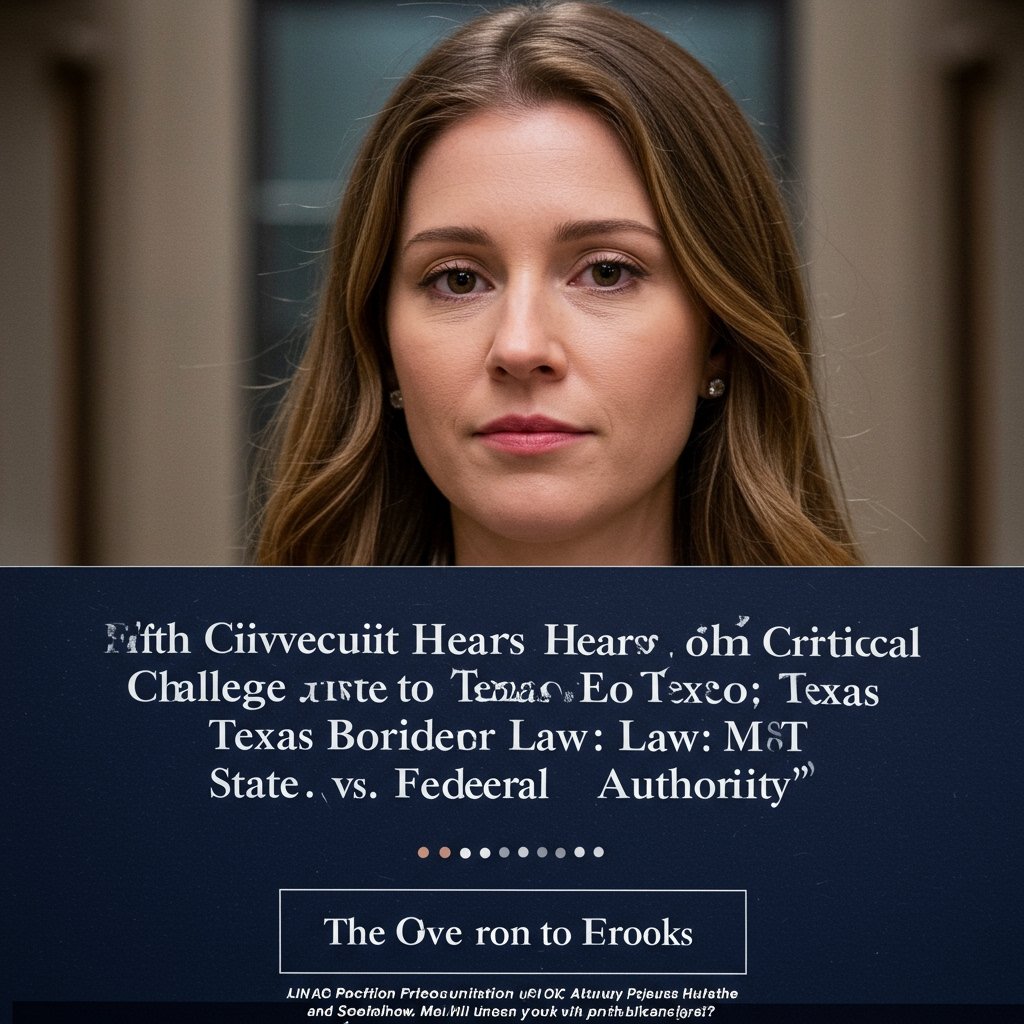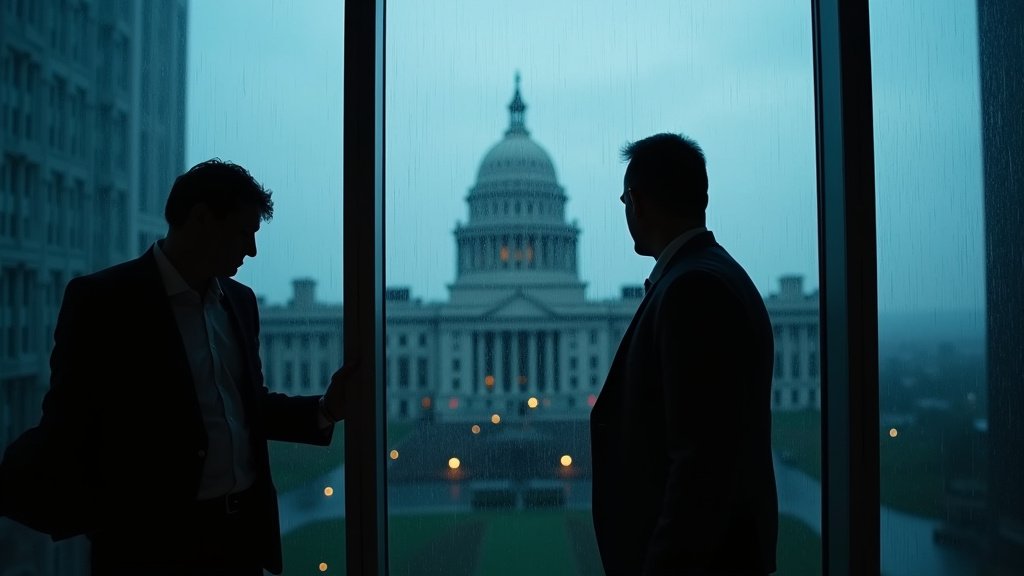Fifth Circuit Scrutinizes Texas Border Enforcement Law Amid Heated Arguments
NEW ORLEANS, LA – The Fifth U.S. Circuit Court of Appeals in New Orleans today, February 18, 2025, became the focal point of a significant legal battle, convening to hear intensive oral arguments concerning the constitutionality of Texas’s state border enforcement law. This controversial statute empowers Texas state law enforcement officers to detain individuals suspected of having crossed the border into the state unlawfully.
The hearing before the appellate panel delved deep into complex questions surrounding the division of powers between the state and federal governments, specifically regarding immigration enforcement. The state of Texas, represented by Texas Attorney General [Simulated Name], vigorously defended the law, framing it as a necessary and vital exercise of state sovereignty in response to what they describe as a severe and ongoing border crisis.
Texas Argues for State Sovereignty in Face of Border Crisis
During the oral arguments, Attorney General [Simulated Name] presented Texas’s case, asserting that the state has an inherent right and responsibility to protect its borders and its residents, particularly when, in their view, the federal government has failed to adequately address the influx of individuals crossing the international border. The Attorney General argued that the state law is not an attempt to create a separate immigration system but rather a measure to address immediate public safety concerns and manage the effects of large-scale unlawful crossings on Texas communities and resources.
The state’s legal team contended that the law’s provisions allowing state law enforcement to apprehend and detain individuals suspected of unlawful entry are a legitimate extension of state police powers, permissible under the U.S. Constitution, especially given the extraordinary circumstances on the border. They highlighted the strain placed upon state and local infrastructure, emergency services, and law enforcement resources by the current situation, portraying the state law as a pragmatic and essential tool for restoring order.
Attorney General [Simulated Name] emphasized that the state is not seeking to deport individuals – a power acknowledged as exclusively federal – but rather to apprehend and process those who have violated state law by unlawfully entering the state. The distinction, the state argued, is crucial and places the law within the bounds of state authority, particularly in a situation of crisis.
Challengers Counter: Federal Authority Usurped, Civil Liberties Jeopardized
Legal representatives for the parties challenging the Texas law presented a starkly different interpretation. They argued forcefully that the Texas statute steps squarely into the domain of immigration regulation, an area that the U.S. Constitution reserves exclusively for the federal government. They contended that allowing individual states to enact and enforce their own immigration-related statutes would lead to a fragmented, inconsistent, and potentially chaotic national immigration system, undermining the principle of federal supremacy.
The challengers’ attorneys asserted that the Texas law effectively creates a state-level immigration enforcement regime, complete with provisions that mirror federal immigration laws, thereby usurping the federal government’s established authority. They pointed to historical Supreme Court precedents that have consistently affirmed the comprehensive nature of federal power over immigration matters.
Furthermore, the opponents of the law raised serious concerns about the potential impact on civil liberties. They argued that empowering state and local law enforcement to detain individuals based on suspicion of unlawful border crossing could lead to racial profiling, unwarranted stops, and violations of the due process rights of individuals, including U.S. citizens and legal residents, who may be mistakenly targeted. The potential for disparate application of the law and the risk of detaining individuals without proper federal immigration procedures were central points in their arguments.
The Court’s Deliberation and Future Impact
The three-judge panel on the Fifth Circuit listened intently to hours of detailed arguments from both sides, posing pointed questions to the attorneys on constitutional interpretation, the scope of state police powers, federal preemption, and the practical implications of the law’s enforcement. The judges explored the specific language of the Texas statute and its alignment, or lack thereof, with existing federal immigration law and enforcement mechanisms.
The complexity of the legal questions and the high stakes involved were evident throughout the proceedings. The Fifth Circuit is now tasked with deliberating on these weighty issues and determining whether the Texas law can withstand constitutional scrutiny under the Supremacy Clause, which holds that federal laws are the supreme law of the land.
A decision from the appellate court is anticipated in the coming weeks. This ruling is poised to have a critical impact, not only on Texas’s ability to enforce its own immigration-related statutes and its ongoing efforts to manage the border situation but also on the broader legal landscape concerning the division of authority between state and federal governments in immigration matters across the United States. Depending on the outcome, the case could potentially be appealed to the U.S. Supreme Court, further extending the legal battle over state involvement in border enforcement.






